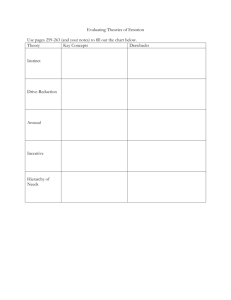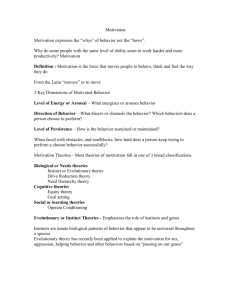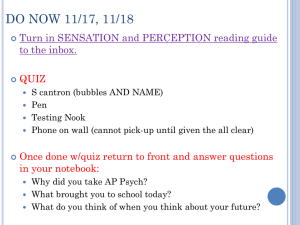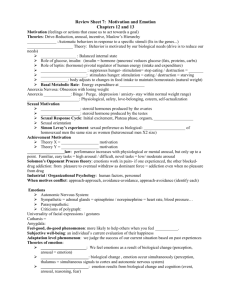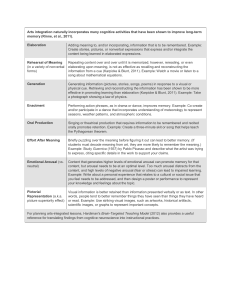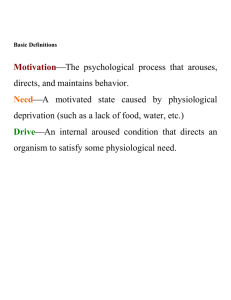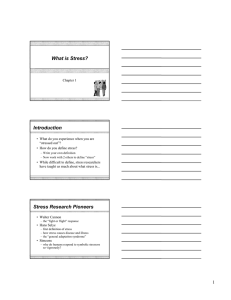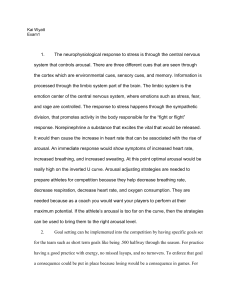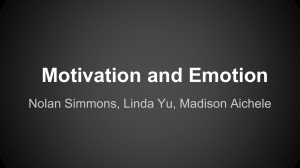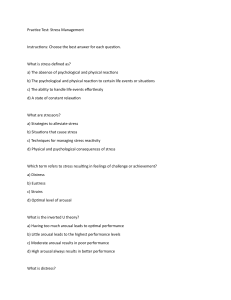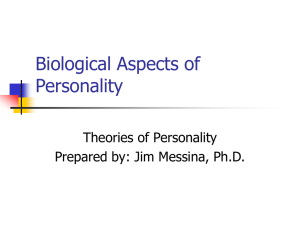File
advertisement
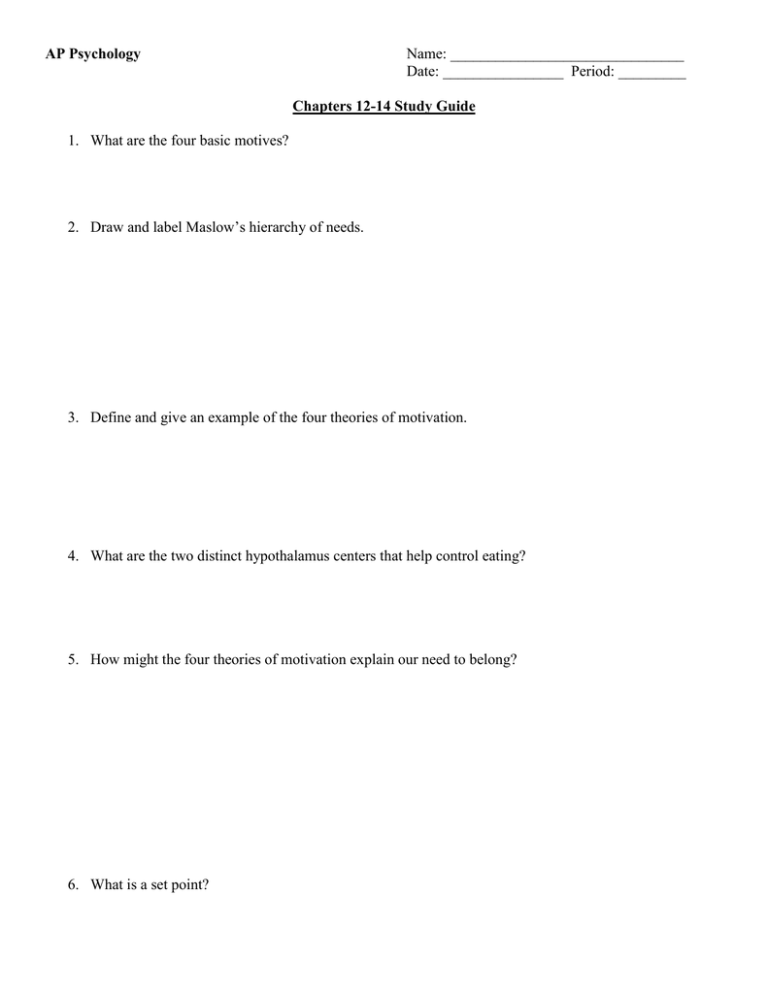
AP Psychology Name: _______________________________ Date: ________________ Period: _________ Chapters 12-14 Study Guide 1. What are the four basic motives? 2. Draw and label Maslow’s hierarchy of needs. 3. Define and give an example of the four theories of motivation. 4. What are the two distinct hypothalamus centers that help control eating? 5. How might the four theories of motivation explain our need to belong? 6. What is a set point? 7. What are four things that an industrial/organizational psychologist can do in the workplace? 8. Compare and contrast anorexia and bulimia. 9. Describe the biology and psychology involved in hunger. 10. Discuss the biological and socio-cultural links to anorexia and bulimia. 11. Define and discuss the three theories of emotion. 12. Describe the major physiological changes that each of the following undergoes during emotional arousal: a. Heart: b. Muscles: c. Breathing: d. Digestion: e. Pupils: 13. The responses of arousal are activated by the ___________________ nervous system. In response to this signal, the ___________________ glands release the hormones ___________________ and ___________________ which help aid the body. When the need for arousal has passed, the body is calmed through the activation of the ___________________ nervous system. 14. Evaluate the effectiveness of the polygraph in detecting lies. 15. Identify some potential problems with expressing anger. 16. Who is least likely to display negative emotions? a. Paul, a game warden in Australia b. Niles, a stockbroker in Belgium c. Debbie, a doctor in the US d. Yoko, a dentist in Japan 17. What is nonverbal communication? What are some cultural similarities and differences? 18. Define adaptation level phenomenon. 19. Discuss the relative deprivation principle. 20. What part of the limbic system is involved with anger/rage and fear? 21. What is smile therapy? 22. Describe the biology of the “fight or flight” response. 23. Describe the physical characteristics and phases of the General Adaptation Syndrome. 24. Discuss the role of stress in causing Coronary Heart Disease. 25. Contrast Type A and Type B personalities, and discuss how they’re related to stress. 26. Describe the effect of stress on the immune system’s ability to function, including stress’s role in the progression of AIDS and cancer. 27. Describe some important ways to relieve stress. 28. When do people tend to start smoking? Why? 29. Which theory of weight control maintains that an obese person’s body is set to maintain body weight within a higher-than-normal range? 30. Describe biofeedback and how it works. 31. Compared with monkeys left in stable groups, those who were housed with three or four new roommates each month were more likely to experience ___________________.
